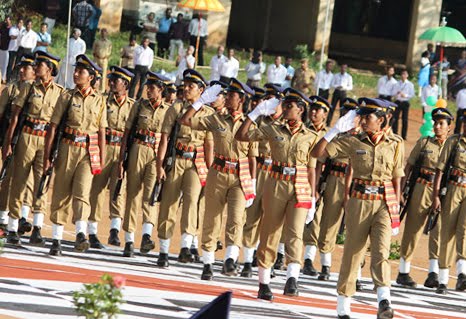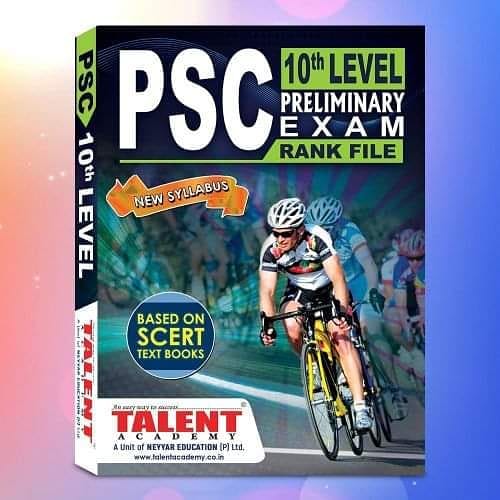
Kerala PSC has announced the exam dates of Pharmacist Grade 2.Those who are eligible can apply through one time registration process of Kerala PSC before 04-11-2020.Aspirants must have well knowledge about the updated syllabus and the exam pattern ,that will help you in developing a very good study plan and easy to crack the exam simply. So for easy understanding and preparation’s for the exam we will provide you the Kerala PSC grade 2 2020 full syllabus and exam pattern in detailly with all content.
Kerala PSC Pharmacist Grade 2 2020 – Exam Pattern
Exam Type: Objective Multiple Choice
Mode of Examination: OMR/Online
Total Marks: 100
Total time duration: 1 Hour 15 Minutes
Kerala PSC Pharmacist Grade 2 Syllabus 2020
- Pharmaceutics – I Sterilization-
Concept of sterilization and its differences from disinfection-Thermal resistance of microorganisms. Sterilization with moist heat, Dry heat sterilization, Sterilization by radiation, Sterilization by filtration and Gaseous sterilization.
Processing of Tablets-
Definition; different type of compressed tablets and their properties. Processes involved in the production of tablets; Tablets excipients; Defects in tablets; Evaluation of Tablets; Physical standards including Disintegration and Dissolution. Tablet coating-sugar coating; films coating, enteric coating and micro-encapsulation
Processing of Capsules-
Hard and soft gelatin capsules; different sizes of capsules; filling of capsules; handling and storage of capsules. Special applications of capsules. - Pharmaceutical Chemistry – I
Acids, bases and buffers-
Boric acid, Hydrochloric acid, Strong Ammonium hydroxide, Sodium hydroxide and official buffers.
Antimicrobials and Astringents-
Hydrogen peroxide, Potassium permanganate, Chlorinated lime, Iodine, Solutions of Iodine, Povidone-iodine, Boric acid, Borax, Silver nitrate, Mild silver protein, Mercury ,yellow, Mercuric oxide, Ammoniated mercury.
Expectorants and Emetics-
Ammonium chloride, Potassium iodide, Antimony potassium tartrate. Antidotes- Sodium nitrite. Inorganic official compounds of Iron, Iodine and Calcium, Ferrous Sulphate and Calcium Gluconate. - Pharmacognosy
(a) Laxatives- Aloes, Rhubarb, Castor oil, Ispaghula, Senna.
(b) Cardiotonics- Digitalis, Arjuna.
(c) Carminatives & G.I. regulators- Umbelliferous fruits, Coriander, Fennel, Ajowan, Cardamom, Ginger, Black pepper , Asafoetida, Nutmeg, Cinnamon, Clove.
(d) Astringents- Catecheu.
(e) Drugs acting on nervous system- Hyoscyamus, Belladonna, Aconite, Ashwagandha,
Ephedra, Opium, Cannabis, Nux -vomica.
(f) Antihypertensive- Rauwolfia.
(g) Antitussives- Vasaka, Tolu balsam, Tulsi.
(h) Antirheumatics- Guggul, Colchicum.
(i) Antitumour- Vinca.
(j) Antileprotics- Chaulmoogra oil.
(k) Antidiabetics- Pterocarpus, Gymnema sylvestre.
(l) Diuretics- Gokhru, Punarnava.
(m) Antidysenterics- Ipecacuanha.
(n) Antiseptics and disinfectants- Benzoin, Myrrh, Neem, Curcuma.
(o) Antimalarials- Cinchona.
(p) Oxytocics- Ergot.
(q) Vitamins- Shark liver oil and Amla.
(r) Enzymes- Papaya, Diastase, Yeast.
(s) Perfumes and flavouring agents- peppermint oil, Lemon oil, Orange oil, lemon grass oil, sandal wood. - Pharmaceutics II
Biphasic Liquid Dosage Forms:
Suspensions (elementary study)-Suspensions containing diffusible solids and liquids and their preparations. Study of the adjuvant used like thickening agents, wetting agents, suspensions of precipitate forming liquids like tinctures, their preparations and stability. Suspensions produced by chemical reaction. An introduction to flocculated /non-flocculated suspension system.
Emulsions-
Types of emulsions, identification of emulsion system, formulation of emulsions, selection of emulsifying agent. Instabilities in emulsions, preservation of emulsions.
Dental and cosmetic preparations:
Introduction to Dentifrices, facial cosmetics, Deodorants. Antiperspirants, shampoo, Hair dressings and Hair removers. Dental and cosmetic preparations: Introduction to Dentifrices, facial cosmetics, Deodorants. Antiperspirants, shampoo, Hair dressings and Hair removers.
Parenteral dosage forms-
Definition, General requirements for parenteral dosage forms. Types of parenteral formulations, vehicles, adjuvants, processing and personnel, Facilities and quality control.Preparation of Intravenous fluids and admixtures-Total parenteral nutrition, Dialysis fluids.
Ophthalmic products:
study of essential characteristics of different ophthalmic preparations. Formulation additives, special precautions in handling and storage of ophthalmic products. - Pharmaceutical Chemistry II
Antiseptics and Disinfectants-
Proflavine, Benzalkonium chloride, Cetrimide, Phenol, chloroxylenol, Formaldehyde solution, Hexachlophene, Nitrofurantoin.
Sulphonamides-
Sulphadiazine, Sulphaguanidine, Phthalylsulphathaizole, Succinylsulphathiazole, Sulphadimethoxine, Sulphamethoxypyridazine, Co-trimoxazole, sulfacetamide
Antileprotic Drugs–
Clofazimine , Thiambutosine, Dapsone, solapsone,
Anti-tubercular Drugs–
Isoniazid, PAS, Streptomycin, Rifampicin, Ethambutol, Thiacetazone, Ethionamide, cycloserine, pyrazinamide*.
Antibiotics-
Benzyl penicillin, Phenoxy methyl penicillin, Benzathine penicillin, Ampicillin,Cloxacillin, Carbencicillin, Gentamicin, Neomycin, Erythromycin, Tetracycline, Cephalexin,Cephaloridine, Cephalothin, Griseofulvin, Chloramphenicol.
Antifungal agents-
Undecylenic acid, Tolnaftate, Nystatin, Amphotericin, Hamycin.
Antimalarial Drugs-
Chloroquine,Amodiaquine, Primaquine, Proguanil, Pyrimethamine, Quinine,Trimethoprim.
Tranquilizers-
Chlorpromazine, Prochlorperazine, Trifluoperazine, Thiothixene, Haloperiodol, Triperiodol, Oxypertine, Chlordiazepoxide, Diazepam, Lorazepam, Meprobamate.
Antidepressant Drugs-
Amitriptyline, Nortryptyline, Imipramine, Phenelzine, Tranylcypromine.
Adrenergic drugs-
Adrenaline, Noradrenaline, Isoprenaline, Phenylephrine, Salbutamol, Terbutaline, Ephedrine, Pseudoephedrine.
Adrenergic antagonist-
Tolazoline, Propranolol, Practolol. Cholinergic Drugs- Neostigmine, Pyridostigmine, Pralidoxime, Pilocarpine, Physostigmine.
Cholinergic Antagonists-
Atropine, Hyoscine, Homatropine, Propantheline, Benztropine, Tropicamide,Biperiden.
Diuretic Drugs-
Furosemide, Chlorothiazide, Hydrochlorothiazide, Benzthiazide, Urea, Mannitol, Ethacrynic Acid.
Anti-Neoplastic Drugs-
Actinomycin, Azathioprine, Busulphan, Chloramubucil, Cisplatin,Cyclophosphamide, Daunorubicin Hydrochloride, Fluorouracil, Mercaptopurine, Methotrexate, Mytomycin. - Pharmacology & Toxicology
Drugs acting on the central Nervous system:
General anaesthetics- adjunction to anaesthesia, intravenous anaesthetics. Analgesic antipyretics and non-steroidal anti-inflammatory drugs- Narcotic analgesics. Antirheumatic and anti-gout remedies. Sedatives and Hypnotics, Psychopharmacological agents, anticonvulsants, analeptics.
Centrally acting muscle relaxants and anti parkinsonian agents.
Drugs acting on autonomic nervous system.
Cholinergic drugs, Anticholinergic drugs, anticholinesterase drugs. Adrenergic drugs and adrenergic receptor blockers. Neurone blockers and ganglion blockers. Neuromuscular blockers, used in myasthenia gravis.
Drugs acting on eye: Mydriatics, drugs used in glaucoma.
Autocoids: physiological role of histamine and serotonin, Histamine and Antihistamines, prostaglandins.
Cardio vascular drugs Cardiotonics, Antiarrhythmic agents, Anti-anginal agents, Antihypertensive agents, peripheral Vasodilators and drugs used in atherosclerosis.
Drugs affecting renal function- Diuretics and anti-diuretics.
Hormones and hormone antagonists- Hypoglycemic agents, Anti–thyroid drugs, sex hormones and oral contraceptives, corticosteroids.
Chemotherapy of microbial diseases: Urinary antiseptics, sulphonamides, penicillin, streptomycin, Tetracyclines and other antibiotics. Antitubercular agents, Antifungal agents, antiviral drugs, anti-leprotic drugs. - Pharmaceutical Jurisprudence
Pharmacy Act,1948-
The General study of the pharmacy Act with special reference to Education Regulations ,Working of state and central councils, constitution of these councils and functions, Registration procedures under the Act.
The Drugs and Cosmetics Act,1940-
General study of the Drugs and cosmetics Act and the Rules there under. Definitions and salient features related to retail and whole sale distribution of drugs. The powers of Inspectors, the sampling procedures and the procedure and formalities in obtaining licenses under the rule. Facilities to be provided for running a pharmacy effectively. General study of the schedules with special reference to schedules C,C1,F,G,J,H,P and X and salient features of labelling and storage conditions of drugs.
The Drugs and Magic Remedies (objectionable Advertisement)Act, 1954-
General study of the Act, objectives , special reference to be laid on Advertisements, magic remedies and objectionable and permitted advertisements -diseases which cannot be claimed to be cured. Narcotic Drugs and psychotropic substances Act, 1985-
A brief study of the act with special reference to its objectives, offences and punishment. - Drug Store And Business Management
Drug House Management- Selection of site, space Lay-out and legal requirements. Importance and objectives of purchasing, selection of suppliers, credit information, tenders, contracts and price determination and legal requirements . Codification, handling of drug stores and other hospital supplies.
Inventory Control- Objects and importance, modern techniques like ABC,VED analysis, the lead time, inventory carrying cost, safety stock, minimum and maximum stock levels, economic order quantity, scrap and surplus disposal.
Sales promotion, Market Research, Salesmanship, qualities of a salesman, Advertising and Window Display.
Banking and Finance- Service and functions of bank, Finance planning and sources of finance. - Hospital Pharmacy
Drug Distribution system in Hospitals.
Out-patient services,In-patient services- types of services detailed discussion of unit Dose system, Floor ward stock system, satellite pharmacy services, central sterile services, Bed side pharmacy.
Manufacturing: Economic considerations, estimation of demand. Sterile manufacture-Large and small volume parenterals, facilities, requirements, layout production planning, manpower requirements.
Non-sterile manufacture-Liquid orals, externals, Bulk concentrates. Procurement of stores and testing of raw materials. Nomenclature and uses of surgical instruments and Hospital Equipments and health accessories.
P.T.C. (Pharmacy Therapeutic Committee)
Hospital Formulary system and their organization, functioning, composition.
Drug Information service and Drug Information Bulletin.
Surgical dressing like cotton, gauze, bandages and adhesive tapes including their pharmacopoeial tests for quality. Other hospital supply eg. I.V.sets, B.G. sets, Ryles tubes, Catheters, Syringes etc
Application of computers in maintenance of records, inventory control, medication monitoring, drug information and data storage and retrieval in hospital retail pharmacy establishment. - Clinical Pharmacy
Disease, manifestation and patho-physiology including salient symptoms to understand the disease like Tuberculosis, Hepatitis, Rheumatoid Arthritis, Cardio-vascular diseases, Epilepsy, Diabetes, Peptic Ulcer, Hypertension.
Physiological parameters with their significance.
Drug Interactions: Definition and introduction. Mechanism of Drug Interaction. Drug-drug interaction with reference to analgesics, diuretics, cardiovascular drugs, Gastro-intestinal agents. Vitamins and Hypoglycemic agents. Drug-food interaction.
Adverse Drug Reaction: Definition and significance. Drug-Induced diseases and Teratogenicity.
Drugs in Clinical Toxicity- Introduction, general treatment of poisoning, systemic antidotes, Treatment of insecticide poisoning, heavy metal poison, Narcotic drugs, Barbiturate, Organophosphorus poisons.
Drug dependences, drug abuse, addictive drugs and their treatment, complications.
Bio-availability of drugs, including factors affecting it.











